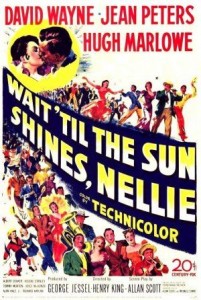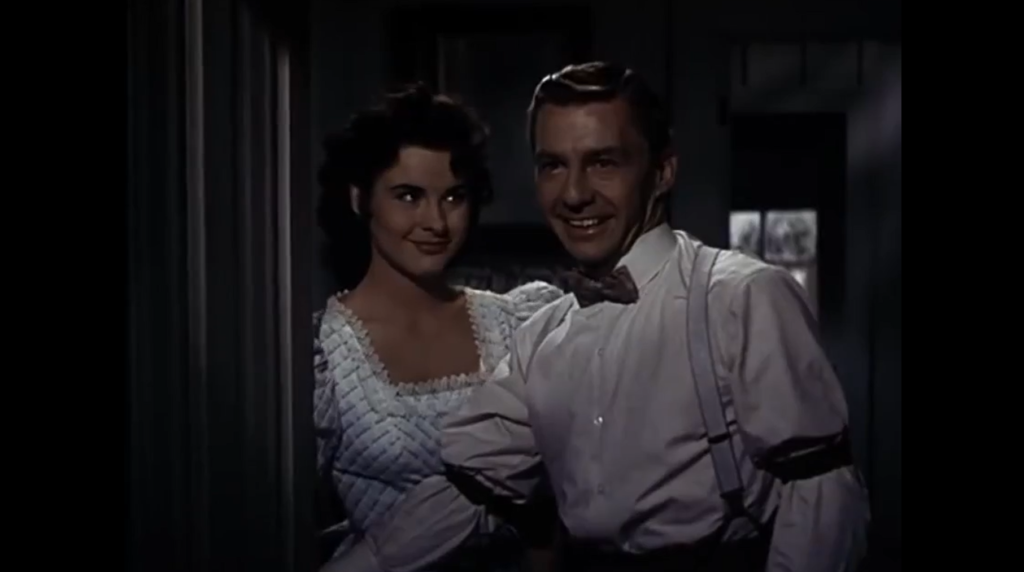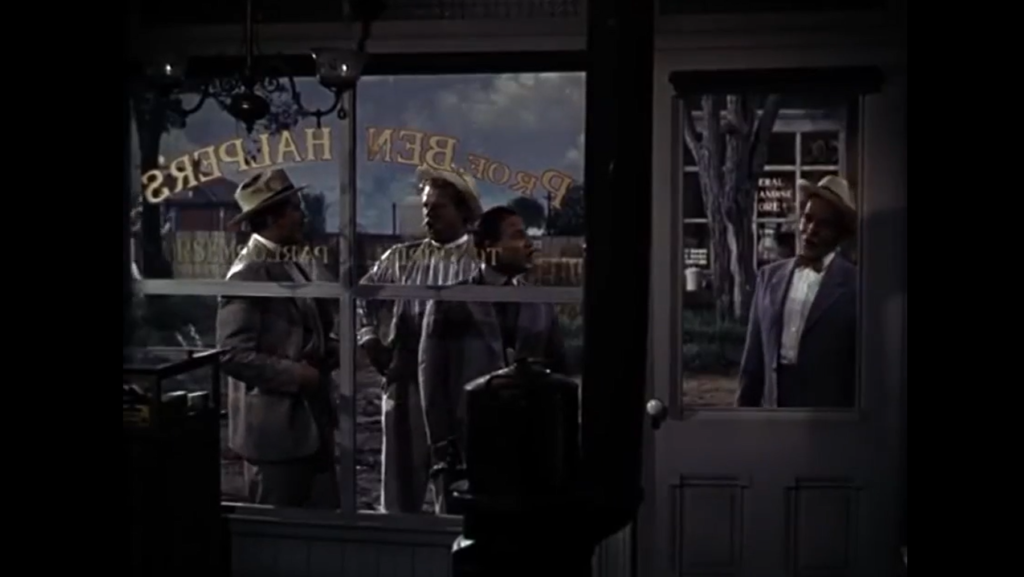Wait Till the Sun Shines, Nellie (1952)
“To a pretty woman like you, Sevillinois must become pretty dull.”
|
Synopsis: |
|
Genres, Themes, Actors, and Directors:
Review: a quartet of willing customers arrives in perfect harmony, ready to sing — you guessed it — barbershop tunes (including the title song). Unfortunately, much less effort is spent on character development; as a result, we’re asked to care about people we’ve barely been given a chance to get to know. Wayne (a notable character actor — you’ll recognize him… from somewhere…) doesn’t quite have the charisma to carry the leading role — and he’s not helped any by the script, which has him deceiving his wife (Peters, looking extremely fetching) from the very beginning of their marriage. Without advance warning, he takes her to a small town, rather than a big city for their honeymoon (as promised); he lies to her about having purchased (rather than leased) the barber shop; and he continually makes decisions about their future without consulting her. No wonder she’s royally teed off by the middle of the film, at which point she petulantly flees to Chicago (can you blame her?) and promptly gets herself killed. Unfortunately, once she’s absent from the film, we care even less about what happens next to our widowed protagonist — so you may be tempted (as I was) to tune out completely from this point on. Redeeming Qualities and Moments: Must See? Links: |



One thought on “Wait Till the Sun Shines, Nellie (1952)”
I lean slightly (rather than wholeheartedly) toward a must on this one.
I had never seen this ‘Barber of Sevillinois’ story and knew little about it. (In fact, from the title, I was expecting something of a musical – which it isn’t; tho music weaves throughout.) But, as the film progressed, I found it surprisingly compelling – ‘surprisingly’ because it was directed by Henry King, a man who most ffs would probably not consider any kind of major director. He made many films – a number of them high-profile studio jobs (‘The Song of Bernadette’, ‘Twelve O’Clock High’, ‘Carousel’, etc.) – and, if I recall correctly, his films tend to be the type that are pleasing to studio heads of yore: basic, non-threatening entertainment.
What starts out as a slice of Americana nostalgia soon reveals itself to have something of a dark side and, to me, that seems unique. ‘Meet Me in St. Louis’ has a touch of that as well, but I think ‘Nellie’ has more of an edge: it deals with infidelity, the race issue, the influx of crime – while highlighting a story that lays out the pitfalls of old-fashioned values.
I don’t know that we’re meant to view Wayne’s character as a completely admirable man. Seems to me we’re meant to see him as representative of the period (when it was most likely more common for men not to tell their wives everything, etc.). [Note: Notice how Peters’ character insists that Wayne lie to her about only leasing the barbership – and he does lie to her, to keep her from being upset: another misguided way of showing love.]
It’s true that Peters leaving ‘Nellie’ is somewhat like Janet Leigh leaving ‘Psycho’; you want to see more of her character and how she may have developed (esp. since her last major scene is a stormy one). But, overall, I don’t think there’s a lack of character development in the film. In fact, generally, I think most of the major characters read as believable – esp. so when they contradict themselves.
I don’t at all see this film as some kind of paean to the past – it seems to me more of a detached observation of the winds of change. At any rate, it held me throughout and I believe it’s worthy of at least a once-and-done.
Favorite scene: Wayne, drunk, loses it in his shop (breaking things, etc.) and has to be talked through his anger/grief.